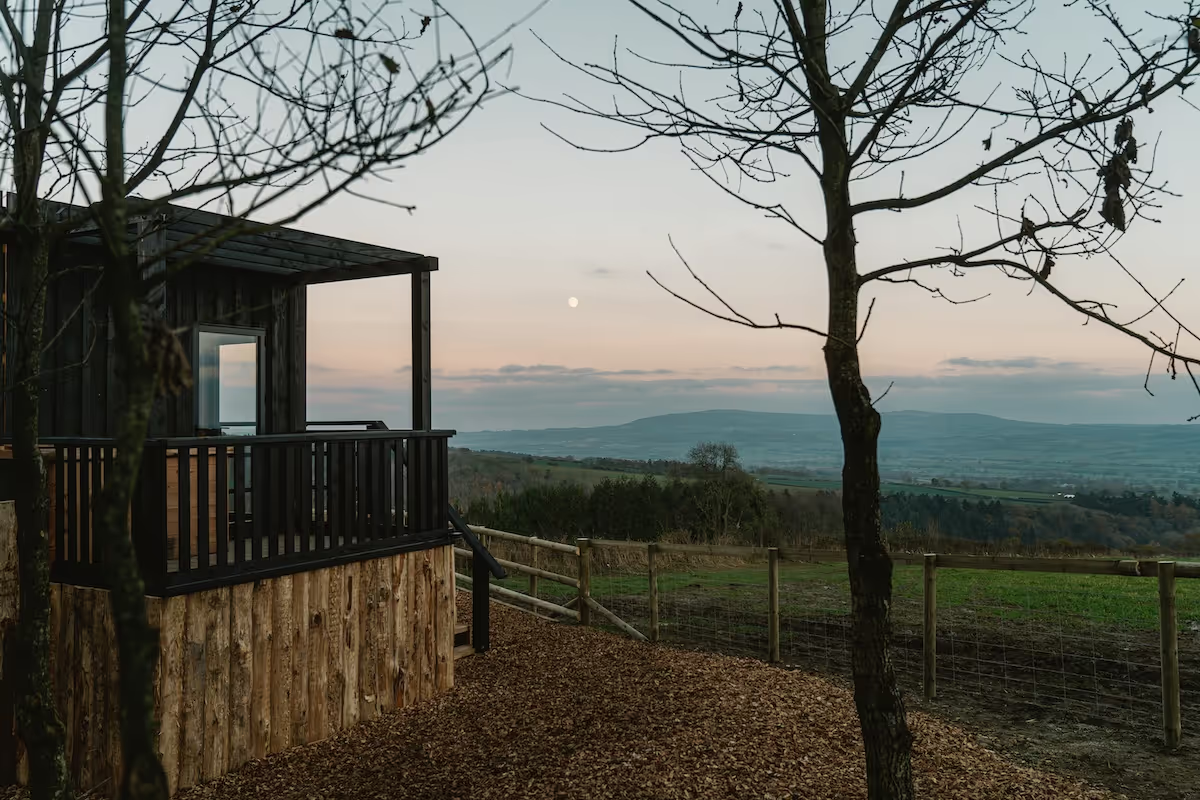Digital Detox Trend: Deliberately offline in tiny houses

On the cell phone again? This is the feeling of many people around the world who find themselves being online too often. In a world that is becoming ever more digital and busy, many therefore want a break from social media, checking emails, working on a laptop or streaming. The step towards a digital break from smartphones, PCs and similar devices is therefore aimed at creating offline retreats and thus promoting mental health and well-being. Preferably in the midst of nature. Find out what the so-called digital detox trend is, what it can do, and how the tiny house concept combines unplugged relaxation with return opportunities.
70 hours per week in front of the screen - with episodes
Progressive digital networking is taking on a significant dimension. The portal Statista has published a study, which shows that Germans spent an average of around 70 hours a week online in 2024. Other findings also confirm that over 40 percent of them have difficulty controlling their screen time. Of course, the advantages of smartphones, laptops and tablets are indisputable. But the constant use of the mobile phone and the “always on” mentality have become a permanent habit for many. However, permanent availability and the associated digital sensory overload can have a negative impact on psychological well-being.
According to the results of recent studies, excessive use of smartphones and social media is causally linked to stress, depression and concentration problems.
Digital Detox: abstinence is good for health
On the other hand, anyone who consciously goes offline at regular intervals improves their sleep quality, reduces stress and increases mental performance. This is an example of the so-called “Three Day Effect”: The positive effects on well-being are particularly noticeable after you have not used any digital devices for at least three days.
One Danube University Krems study has now even proven for the first time a causal relationship between reduced screen time and improved mental health. As part of the survey, one group reduced their daily smartphone use to a maximum of two hours, while the control group stayed at an average of 4.5 hours. After just three weeks, significant differences were already apparent. “For the first time, we were also able to show a causal relationship between smartphone use and mental health,” explains study leader Christoph Pieh. The figures speak for themselves: Depressive symptoms fell by an impressive 27 percent, stress levels fell by 16 percent. At the same time, sleep quality improved by 18 percent, while overall well-being rose by 14 percent.
More and more screen-tired people are obviously hoping for these “benefits”. As a result, the global market for digital detox, which includes both “digital detox tourism” and special apps that regulate usage time, could see significant growth and is expected to reach a value of 466.58 billion dollars by 2034. According to Polaris Market Research & Consulting Inc., average annual growth (CAGR) of 24.5 percent is expected for the period 2025-2034.
Unplugged: Tiny “house time” with return potential
In particular, breaks for smartphones & Co. are in vogue. In Germany alone, planning according to a Survey by the digital association Bitkom 36 percent of respondents aged 16 and over a so-called digital detox in 2025. By way of comparison, at the end of 2021, only nine percent of Germans took a digital break for the new year. On average, people currently want a six-day break from Smartphones & Co, the association announced. Twelve percent of those surveyed are planning a break of several days, and seven percent even want to do without digital media for more than a week.
And what better way to do that than in a secluded hut without Internet? That is why the demand for natural, secluded and comfortable tiny house style retreats is increasing. Booking platforms are seeing an increase in demand for “off-grid” accommodation and the global luxury holiday home platform Plum Guide is also reporting an increase of 17 percent this year in the search for accommodation without Internet access and with minimal technical equipment.
This shows a clear trend towards health and relaxation experiences away from digital distractions. As a pioneer in this market, the British company Get Unplugged Limited has established since 2020, which offers technology-free, attractive retreats for conscious digital breaks. The new FINEXITY project “Unplugged — Digital Time Out in Modern Cabins” offers investors attractive opportunities in this fast-growing market through digital shares: The funds from a secured corporate bond (600,000 EUR, expected return 7-10.25% p.a., term up to 2029) are used to acquire ten more cabins. The business model is scalable, the cabins are utilized at over 86%, and demand is growing: By 2029, the company plans to expand from the current 32 to 958 cabins with significant sales growth.



